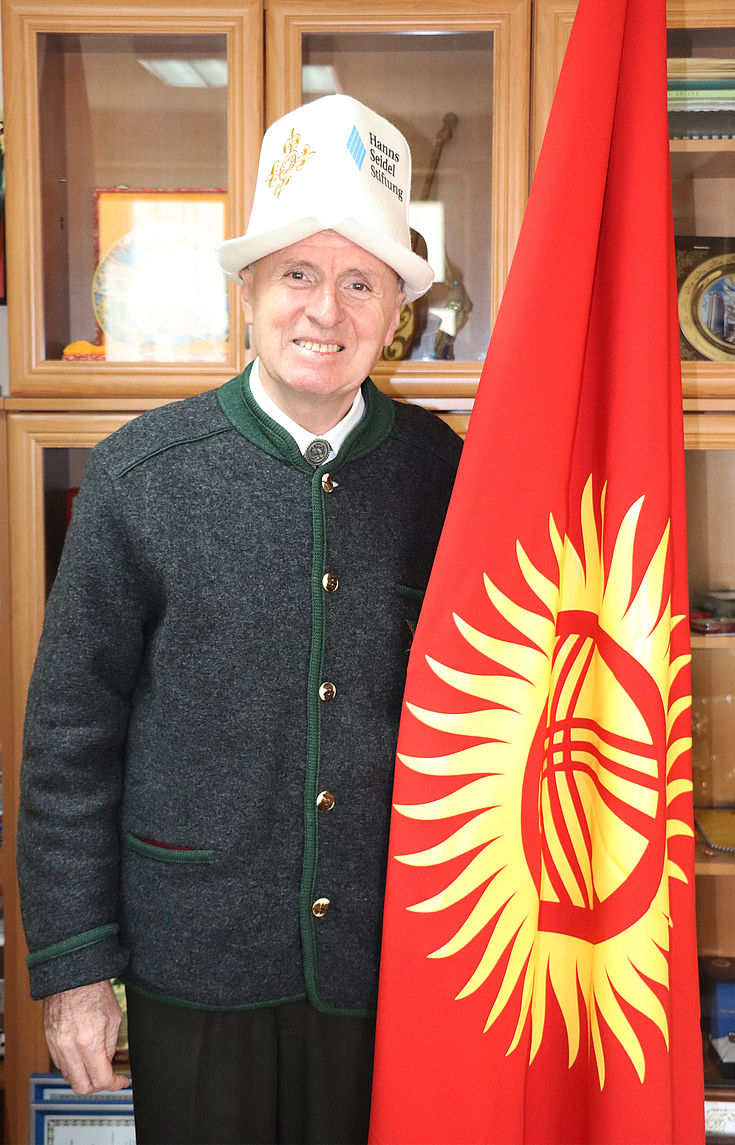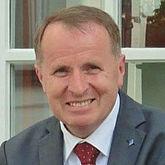Remember: Kurultai (which is now declared the big solution) was originally a local institution in the history of Kyrgyzstan for uruu, etc. Aiyl aiymaks and city administrations are legally their successors.
Kirgisistan/Bischkek
Agenda: strengthen local self-government to solve the problems of the citizens
Микро-тренинг в Джалал-Абадской области организованный стипендиатами Фонда
After I have lived also a “3. Revolution” here in Kyrgyzstan I have asked myself quite often what the reasons for this recent dramatic event were and if Kyrgyz people are dissatisfied with the present political system. For this purpose, the German Hanns Seidel Foundation in Kyrgyzstan I am heading has organized a survey during past week.

Макс Георг Майер, координатор пректов ФХЗ в Центаральной Азии
Like I expected, a majority of the participants is not satisfied with the present parliamentary system (71,2%) and the work of the parliamentarians (93,8%) as also political parties (74,2%). They complain here missing responsibility, deficit of transparency and following of own interests (corruption included). Some remind us of the honest work of the legendary convocation. But on the other hand they also don´t want to abstain from parliament and political parties. 65,7% of the survey attendants think that Kyrgyzstan needs political parties. But their tendency/preference here is more a system with 3-4 strong parties instead of a huge number of small parties.
Off course, if people are disappointed with the political system during the last 10 years, they will show this with protests – especially here in Kyrgyzstan with an active civil society and a politically very interested and critical youth. 5th October was a result of this disappointment.
Everybody in Kyrgyzstan is looking now for a way out from this present political dead-end street. Some citizens hope for the “magic savior and political leader” who will solve all problems. This means, again to follow the “principle hope” which seems to me not so realistic nowadays in Kyrgyzstan.
Coming to the preference for the future political system of Kyrgyzstan opinions are diverse. Only half of the survey participants support again a presidential system. The others probably have in mind the bad experience with ousted presidents Akajev and Bakiyev, as the never-ending conflict between the former presidents Atambajev and Jeenbekov (coming from the same once biggest political party and ruining this grouping jointly).
But I am afraid to say that I am not expecting that the country will find “political peace” in near future with the discussion if the presidential or the parliamentarian system is better. This is just a game to re-distribute political power (connected with administrative resources) between old and new political groups. And the ongoing constitutional reform efforts are an instrument in this context.
And I repeat myself here again: The solution for Kyrgyzstan is to strengthen local self-government (municipalities, cities and rayons with their administrations) to solve the problems of the citizens at local level without bringing them to Bishkek.
At the end a recommendation: During the survey I was surprised that participants - people of Kyrgyzstan – are mentioning so often the issue of separation into urus, ethnics or zones (upper, lower) also almost 30 years after independence and that they are afraid that this could influence still political decisions. Therefore, all candidates to become a president of this beautiful country should try to choose a well-balanced language to unite not to divide people.

Dr. Max Georg Meier
Projektleiter Zentralasien
